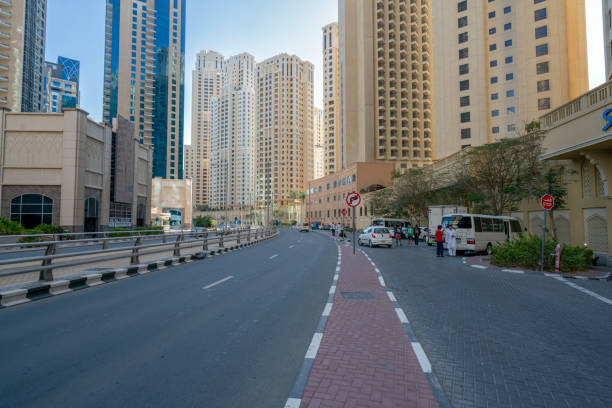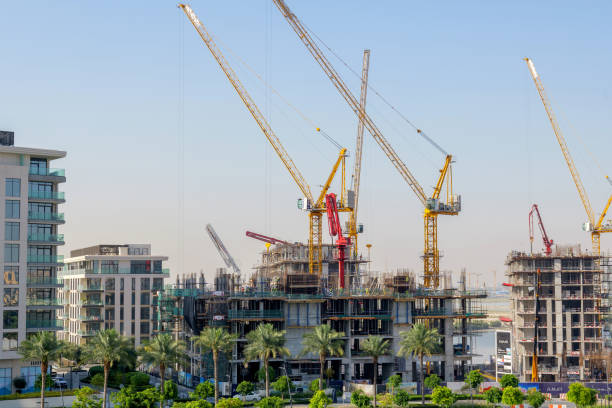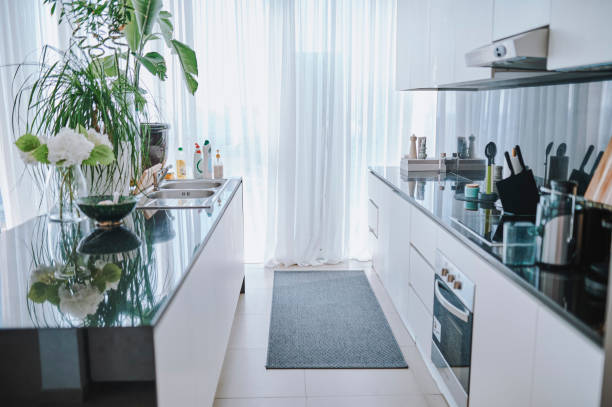
Why are apartments in Dubai cheaper?
Dubai, known for its towering skyscrapers and opulent lifestyle, surprisingly offers relatively affordable apartments. While the city’s real estate market might seem high-end, several factors contribute to keeping apartment prices lower than one might expect. From economic influences to market competition, and regulatory frameworks, many aspects shape the pricing dynamics in Dubai’s property landscape. Understandably, anyone keen on investing in Dubai real estate would benefit from understanding these factors. This article delves into the key reasons behind the affordability of apartments in Dubai.
Economic Factors Influencing Property Prices
Global Economic Conditions
Global economic conditions play a significant role in influencing Dubai’s property prices. Changes in oil prices, for instance, directly impact the local economy, which is heavily dependent on oil exports. Fluctuations in international trade relations and global economic stability also affect investment patterns, influencing property demand and prices.
Local Economic Policies
Dubai’s local economic policies significantly contribute to affordable property rates. For example, the city has minimal direct taxes, which encourages both expatriate and local property investments. Additionally, the government consistently offers incentives to real estate investors, such as reduced registration fees and tax benefits, further fostering a favorable investment environment. These policies make attractive projects like Azizi Venice more accessible to a broader audience.

Supply and Demand Dynamics
Rapid Urban Development
Dubai’s rapid urban development has led to an abundance of new construction projects. The government’s commitment to continuous infrastructure development has resulted in several megaprojects, contributing to an increase in housing supply. This extensive development helps maintain competitive property prices. To illustrate this point, consider the following data:
| Year | New Residential Units | Total Residential Units |
|---|---|---|
| 2018 | 20,000 | 500,000 |
| 2019 | 25,000 | 525,000 |
| 2020 | 30,000 | 555,000 |
Population Growth and Demographics
The composition of Dubai’s population significantly influences housing demand. A considerable proportion of the population are expatriates, whose housing needs vary from those of local residents. Expats often look for affordable rental and purchase options. Furthermore, demographic trends indicate a steady population growth, which bolsters demand for a diverse range of housing solutions, thereby impacting prices.
Market Competition
Increase in Property Developers
The surge in the number of property developers has intensified competition in Dubai’s real estate market. This competition is a key factor in maintaining affordable pricing strategies. Developers strive to attract buyers through competitive pricing and attractive payment plans. Consequently, buyers and investors have a wide array of choices, fostering a buyer-friendly market environment.
Variety in Housing Options
Dubai offers a broad range of housing solutions, from luxury apartments to more affordable housing units. This variety ensures that every segment of the market is catered to. By providing diverse housing options, the market remains balanced, preventing significant price spikes and ensuring affordability.
Regulatory Environment
Property Ownership Laws
Dubai’s property ownership laws are instrumental in shaping the real estate market. The introduction of freehold property laws has attracted foreign investors, contributing to the growth of the real estate sector. These laws provide expatriates the ability to own property, boosting demand and supporting a dynamic market landscape.
Rent Control and Tenant Protection Laws
The government’s regulation on rent and strong tenant protection laws also impact the market. These regulations ensure rental affordability, which indirectly influences apartment prices. Rent controls prevent exorbitant price hikes, maintaining market stability and making residential options more attainable for a broader demographic.
Real Estate Trends and Forecasts
Impact of the COVID-19 Pandemic
The COVID-19 pandemic has had short-term and long-term implications on Dubai’s real estate market. Initially, property prices experienced a decline due to decreased demand. However, as remote working trends emerged and preferences for larger living spaces grew, the market showed resilience and began to recover. It’s crucial to consider these evolving trends when analyzing price fluctuations.
Future Prospects for Dubai’s Property Market
Future prospects for Dubai’s property market appear promising. Upcoming infrastructure and development projects, coupled with the government’s strategic economic visions, suggest a continued growth trajectory. Long-term plans, such as the Dubai 2040 Urban Master Plan, aim to enhance livability and business opportunities, likely sustaining the attractiveness of the real estate market.

Conclution
In summary, multiple factors contribute to the affordability of apartments in Dubai. Economic influences, rapid urban development, market competition, and a robust regulatory environment cumulatively shape the dynamics of the property market. Understanding these elements provides valuable insights for potential investors and residents seeking to navigate Dubai’s real estate landscape effectively.
Frequently Asked Questions
1. Are there any risks involved in buying apartments in Dubai?
While Dubai generally has a stable property market, potential risks include sudden changes in regulations, market volatility, and economic fluctuations. It is advisable to do thorough research and possibly consult a legal expert before making any purchases.
2. Can foreign nationals own property in Dubai?
Yes, foreign nationals can own property in designated freehold areas in Dubai. These areas offer full ownership rights, similar to those of locals.
3. What are the typical costs associated with buying an apartment in Dubai?
Costs often include the property price, agency fees (around 2-5%), registration fees, and a possible 4% Dubai Land Department transfer fee. Maintenance and service charges are also applicable annually.
4. Is it better to rent or buy an apartment in Dubai?
The choice between renting or buying depends on individual circumstances. Buying can be a good long-term investment and offers stability, while renting provides flexibility, especially for expats who might be in the city on a temporary basis.
5. How has the COVID-19 pandemic affected the real estate market in Dubai?
The pandemic initially led to a drop in property prices due to reduced demand. However, the market has shown resilience with emerging trends in remote working and a focus on larger living spaces, which are gradually leading to market recovery.


